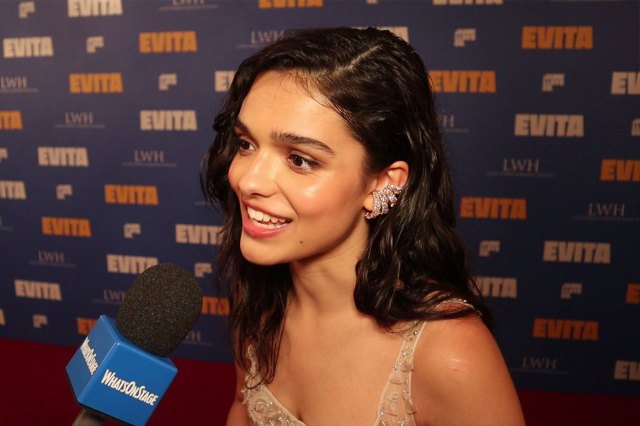Amanda Whittington on Ladies Down Under and Other Plays
Why did you write a sequel to Ladies’ Day?
Sequels are commonplace in novels and television but not in theatre, so I was curious to see how it might be to put the same group of characters into a new situation. I had a wonderful cast in the original Ladies’ Day and I wanted to continue writing the story for those actors. It was great to explore the characters knowing who was playing them and taking what they’d brought to the first play to develop them further. The end of Ladies’ Day is a new beginning and audiences were asking “what happens next?” so it felt like a natural progression. Having said that, you don’t have to see the first play to enjoy the second. Both plays toured with Hull Truck and many of the venues on the Ladies Down Under tour hadn’t had Ladies’ Day. It was interesting to see that I went down equally well at both.
At the beginning, they’re pretty much the same people which is one of the themes of the play. The money doesn’t really solve anything and for a couple of them, it brings a whole new set of problems. Shelley makes the same mistakes as she does in Ladies’ Day and Linda wants to give the money away. Pearl and Jan appreciate the winnings but they still have challenges of their own to face. As the old song says “money can’t buy you love” and that’s pretty much what they’re all (still!) looking for. But I’d say they all have a bigger journey in Ladies Down Under and learn something about themselves that changes them forever.
What research did you do for both plays?
I went to the races for Ladies’ Day but sadly the budget didn’t stretch to a trip to Australia for Ladies Down Under! I’ve never been to Australia but I’ve friends out there to whom I spoke at length – and I know plenty of people who’ve had a holiday there – so I gathered all their stories and anecdotes. I don’t believe you have to experience everything to write about it. I used to be a journalist, so partly I still work as a reporter and then add my own emotional truth to the story. Ladies Down Under also takes a British perspective on Australia and has fun with some of the Aussie archetypes we know and love here in England. It’s not a documentary but the characters are recognisable and real.
How closely have you been involved with this new production at Hornchurch?
After the first production of a new play, I generally step back from any close involvement. It’s a bit like your children growing up; you let them go and make their own way in the world. It’s always a real pleasure to arrive at the theatre to see a new production which I haven’t been involved in, as I get to experience it as a member of the audience rather than as “the writer”. Actually, I haven’t seen Ladies Down Under at all for a couple of years now and having that kind of distance can be quite illuminating. When you’re in rehearsal, you have an entirely different perspective so it’ll be very interesting to watch it and (kind of) not know what’s coming next!
Are you planning to take the ladies elsewhere?
It’s been suggested a number of times and audiences are still asking for Ladies 3 but I’m not sure. I was determined to avoid Ladies Down Under becoming a formulaic copy-cat play and I do think the two scripts have two very different identities. There’s also a sense of completion at the end of Ladies Down Under so I’d have to be sure I could do something fresh and surprising with a third.
What are you writing at the moment, and for which company?
I’ve got a few things on the go, as always. I’m working on The Dug Out for Splice Productions in Bristol, which is set in the infamous Dug Out reggae club on the night the IRA bombed Bristol and also explores a US Army race riot which happened on the same street thirty years earlier. So the storyline’s pretty explosive and the two eras are interwoven throughout the play, which means the music is a fantastic mash-up of reggae, ska, be-bop and jazz. We’ve been developing it for a couple of years now and we have a rehearsed reading in October so it’ll be very exciting to hear it for the first time. I’m also adapting My Judy Garland Life by Susie Boyt for Nottingham Playhouse, which is a beautiful book about being a fan and our relationship with stardom. My summer job has been a Woman’s Hour serial for Radio Four and I’ll have a new play Consent presented at the Momentum Festival by Theatre Writing Partnership in October.
How did you come to write plays in the first place?
I always wanted to write and my secondary school had a brilliant drama department which fired my interest. I discovered theatre and I wanted to be a part of it, so it was that simple, really. I started writing plays in my 20s and it took years to get established, but in that time you find your voice and learn your craft. Writing is a solitary job but theatre is collaborative and I really enjoy the development process, especially when I’m working closely with a good director. The point where you get into a rehearsal room and see the script come to life – and then present it to an audience – is what it’s all about for me. I’d like to write a novel too but I think I’d miss those relationships.












